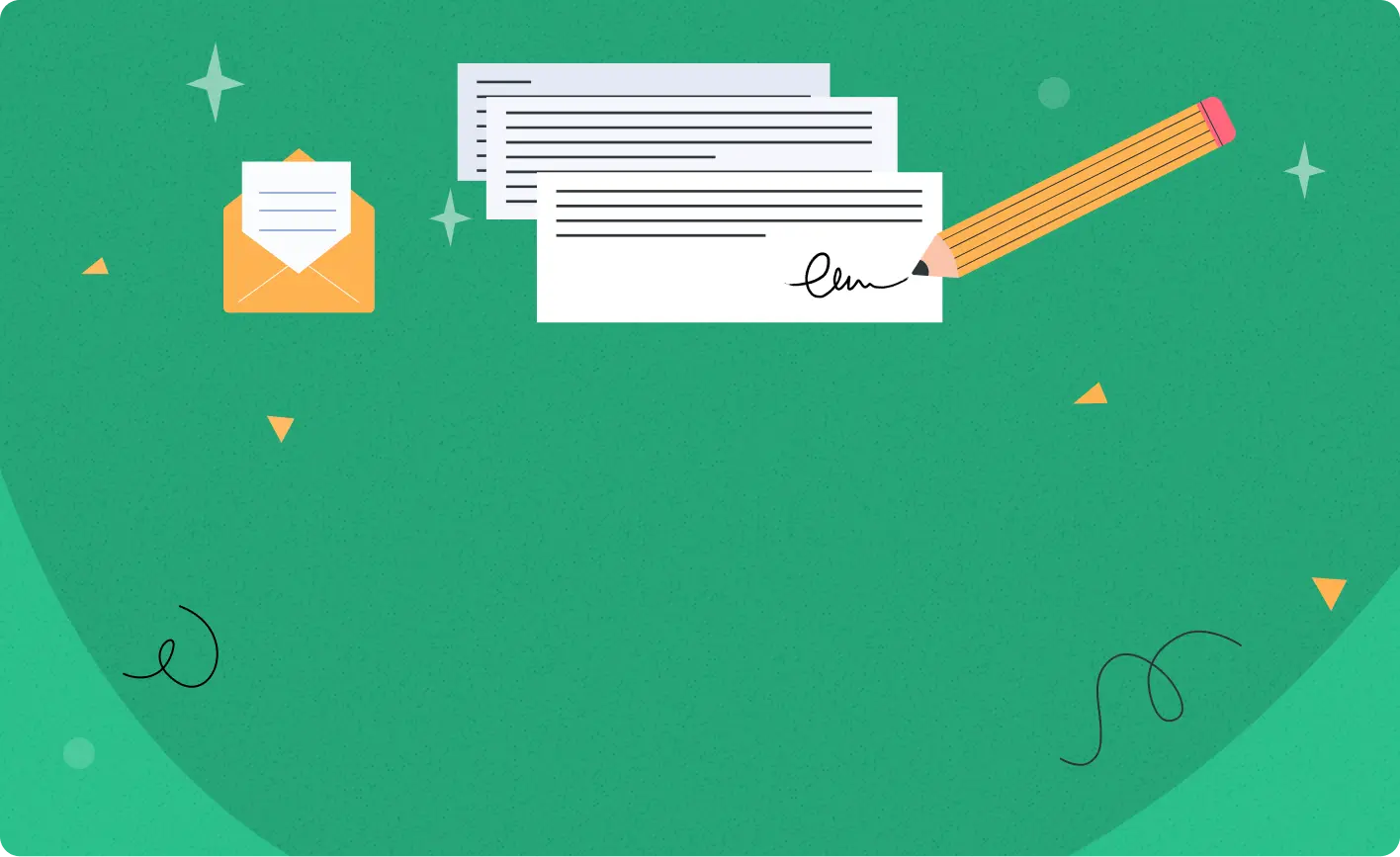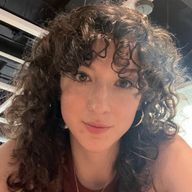You’ve found a great job opening, updated your resume, and now you want to strengthen your application with a strong cover letter. But you’re stuck on one surprisingly tricky question: How long should your cover letter actually be?
It’s a small detail that can have a big impact. Too short, and you risk sounding vague or uninterested. Too long, and hiring managers may not bother reading it. In a competitive job market, a well-sized cover letter can make the difference between landing an interview and getting ignored.
In this article, you’ll find out what the ideal cover letter length is, how to format your letter for maximum impact, and what recruiters expect from a great application. Whether you're writing your first cover letter or updating one for a new role, you’ll know exactly how much is enough—and when it’s too much.
Key takeaways
- Keep your cover letter between 250 to 400 words and no longer than one page.
- Use three to four short paragraphs following a clear structure: intro, body, and closing.
- Customize for the role—generic content won’t get read.
- Formatting matters: clean layout, proper spacing, and easy-to-read fonts enhance readability.
- Hiring managers tend to skim through cover letters—make your value obvious early.
- A letter that’s too short or too long can signal low effort or poor communication skills.
Not sure if you even need a cover letter? Here’s when it’s still worth including one in your application.
Drop your resume here or choose a file.
PDF & DOCX only. Max 2MB file size.
What is the ideal length of a cover letter?
The ideal cover letter should be concise, targeted, and easy to scan.
For most roles in the US, that means:
- Word count: 250 to 400 words
- Paragraphs: Three to four short paragraphs
- Page length: No more than one page
- Character count: Around 2,000 to 2,500 characters
- Line length (for email): No more than 65 characters per line to avoid display issues
Following these guidelines gives you enough space to introduce yourself, connect your experience to the role, and express enthusiasm—without overwhelming the reader.
If you’re sending your cover letter as an email or through an online form, preview how it displays before submitting. Even a well-written document can fall flat if long paragraphs or poor formatting make it hard to read.
While 500 words isn’t automatically a deal-breaker, it’s at the high end of what’s acceptable. Aim for 350–400 words that fit neatly on one page—measuring both word count and layout ensures your letter is readable and professionally formatted. Make sure you don't go beyond 2-3 sentences per paragraph.
What happens if your cover letter is too long or too short?
What if your cover letter goes over the recommended length—or doesn’t say enough? Either way, it can work against you before the hiring manager even starts reading.
If it’s too long (over 500 words or one page)
- It may appear unfocused or self-indulgent.
- It likely won’t be read in full—especially if it feels like a resume in paragraph form.
- It suggests poor communication skills or a lack of respect for the reader’s time.
If your cover letter is creeping toward 1000 words, stop. That length is excessive for nearly every industry and will almost certainly go in the unread pile. Edit for clarity and focus on what’s most relevant to the role.
A two-page cover letter can raise red flags unless you're applying for academic or government roles, where longer formats are occasionally expected.
How to improve a long cover letter
- Trim any repeated information already covered in your resume.
- Focus on one or two achievements that are most relevant to the role.
- Remove generic phrases like “I am writing to express interest...”.
- Cut down on overly detailed background—stick to what supports this job.
- Break long sentences into shorter, clearer ones.
If it’s too short (under 150 words)
- It may come across as rushed, lazy, or generic.
- It often fails to explain why you're a strong fit for the role.
- It can signal low interest or effort.
How to improve a short cover letter
- Expand briefly on why this role or company interests you.
- Add a sentence connecting a past achievement to the role’s needs.
- Mention one key skill or tool you bring to the table.
- Strengthen your closing by expressing enthusiasm and openness to follow up.
- Revisit the job posting—what haven’t you addressed yet?
If you're unsure whether a longer cover letter is acceptable, check the job posting or look for industry norms. When in doubt, stay under one page—concise letters are almost always better received.
The sweet spot is a focused letter that offers just enough to spark interest—and leaves them wanting to learn more.
What hiring managers really want to see in a cover letter
A great cover letter isn’t longer—it’s smarter. It shows the hiring manager that you’ve done your homework and know how to communicate effectively.
Here’s what most hiring managers are looking for:
- A clear structure: A simple format—introduction, body, and closing—makes your letter easy to follow. Each section should serve a purpose without repeating your resume.
- Relevant value: Instead of restating your job history, explain how your background can solve the employer’s current challenges.
- Tailored content:Use the company’s name, mention the job title, and align your strengths with the role. Show you understand their values or industry challenges.
- Authentic tone: Professional doesn’t mean robotic. A cover letter that sounds like you—not like a copied-and-pasted script—builds connection.
- Strong closing: A confident, polite conclusion that expresses genuine interest and invites next steps is key.
To make your cover letter even stronger, focus on choosing the right cover letter format and making sure you include the most relevant details for the job you’re applying for.
Cover letter length by industry or role
While the general rule is to keep your cover letter between 250 and 400 words, some industries and roles allow for slight variations.
Here’s how cover letter expectations may differ depending on the field:
Cover letter length by industry or role
| Industry / Role | Ideal length | Notes |
|---|---|---|
| Corporate / Business | 300 to 400 words | Prioritize results and leadership—keep tone formal and structure tight. |
| Creative (Marketing, Design) | 250 to 350 words | Room for personality—formatting and voice matter more. |
| Technical (IT, Engineering) | 250 to 350 words | Focus on relevant tools, outcomes, and measurable impact. |
| Academia / Research | 400 to 600+ words | Longer letters are acceptable—include research, publications, etc. |
| Government / Federal | 400 to 600+ words | Follow formal structures—align with detailed job requirements. |
If you're unsure what's typical for your field, review job postings or reach out to professionals in that industry.
How the formatting of your cover letter impacts perceived length
Even if your cover letter falls within the ideal word count, poor formatting can make it feel much longer—or worse, unreadable. The way your letter looks on the page plays a huge role in how it's received.
Well-formatted letters feel lighter, more professional, and easier to engage with—even if they’re on the longer side.
If you want a clean, professional layout without starting from scratch, try using a cover letter template that follows best practices for formatting and readability.
Here's how to format for maximum readability and impact:
Cover letter formatting checklist
- Font: Use a clean, professional font like Rubik, Arial, or Times New Roman (11 to 12 pt).
- Margins: Stick to one-inch margins on all sides.
- Alignment: Left-align all text—avoid justified formatting.
- Paragraphs: Keep them short (three to five lines max).
- Spacing: Leave a full line between each paragraph to break up blocks of text.
- Line length: Keep lines under 65 characters to avoid formatting issues in emails and online forms.
- File format: Save as a PDF to preserve formatting unless otherwise specified.
- Final check: Preview your letter in the format it’ll be received—especially for online forms or email pasting.
A clean layout not only makes your letter easier to read—it also shows attention to detail and respect for the reader’s time. That can be just as important as what you say.
Cover letter length examples
Seeing best practices in action makes everything easier. Below are three examples of well-sized cover letters—each tailored to a specific career stage—so you can get a feel for the tone, structure, and length that work. Each one stays within the 250–400 word range and demonstrates how to be concise while making a clear impact.
Ideal for internships or recent graduates with limited experience:
Entry-level example (~250 words)
Dear Hiring Manager,
I’m excited to apply for the Marketing Intern position at BrightStart Co. As a recent graduate in Communications from NYU, I’ve developed a solid foundation in digital strategy, content creation, and data analysis.
During my capstone project, I led a campaign simulation that increased engagement metrics by 42%. I’m confident I can bring this same creativity and results-driven mindset to your growing team. I’m also proficient in Adobe Creative Suite and Google Analytics, which I noticed are key tools in your department.
I’d love the opportunity to bring my enthusiasm and learning mindset to BrightStart. Thank you for considering my application.
Sincerely,
Jordan Lee
Ideal for professionals with a few years of experience applying to a new role:
Mid-level example (~350 words)
Dear Hiring Manager,
I’m writing to express my interest in the Account Manager role at UrbanWave. With five years of experience managing client relationships in the SaaS industry, I’ve developed a reputation for exceeding revenue targets while building long-term partnerships.
At CloudDesk, I managed a $1.2M book of business and helped increase client retention by 18% over two years. I did this by improving onboarding flows and collaborating closely with product teams to ensure customer needs were reflected in the roadmap.
I’m drawn to UrbanWave’s mission to simplify real-time data for small businesses. Your recent product launch shows a commitment to innovation, and I’d be excited to help grow your user base through a consultative, value-first approach.
I’d welcome the chance to talk further about how I can contribute to your team.
Sincerely,
Priya Patel
Ideal for senior roles where a slightly longer letter is appropriate:
Leadership example (~400 to 450 words)
Dear Hiring Manager,
I’m reaching out to express interest in the Director of Operations role at Frame Logistics. With over a decade of experience leading cross-functional teams and implementing scalable systems, I’m confident in my ability to drive operational excellence and sustainable growth.
In my current role at ShiftSupply, I oversaw a warehouse optimization project that reduced costs by 22% while increasing throughput by 17%. I also implemented a new vendor management system that improved delivery accuracy and reduced SLA violations by 35%. These improvements helped support a 2x revenue increase over 18 months.
Beyond the numbers, I pride myself on leading with transparency and building collaborative, high-performing teams. I’ve successfully coached managers across departments and led training programs that improved employee retention by 20%.
Frame Logistics’ reputation for innovation in last-mile delivery is what excites me most. I’d love to bring my experience and strategic mindset to support your next stage of growth.
Thank you for your consideration.
Sincerely,
Marcus Reid
Want to create your own? Use our AI-powered Cover Letter Generator to build a personalized version in minutes—well-formatted and ready to send.
Conclusion
A cover letter doesn’t need to be long to be effective—it needs to be clear, relevant, and easy to read. Stick to one page, stay between 250–400 words, and focus on how you can help the company solve problems or meet goals. That’s what hiring managers care about.
Looking for more inspiration? Browse our full library of cover letter examples for different roles and industries.




